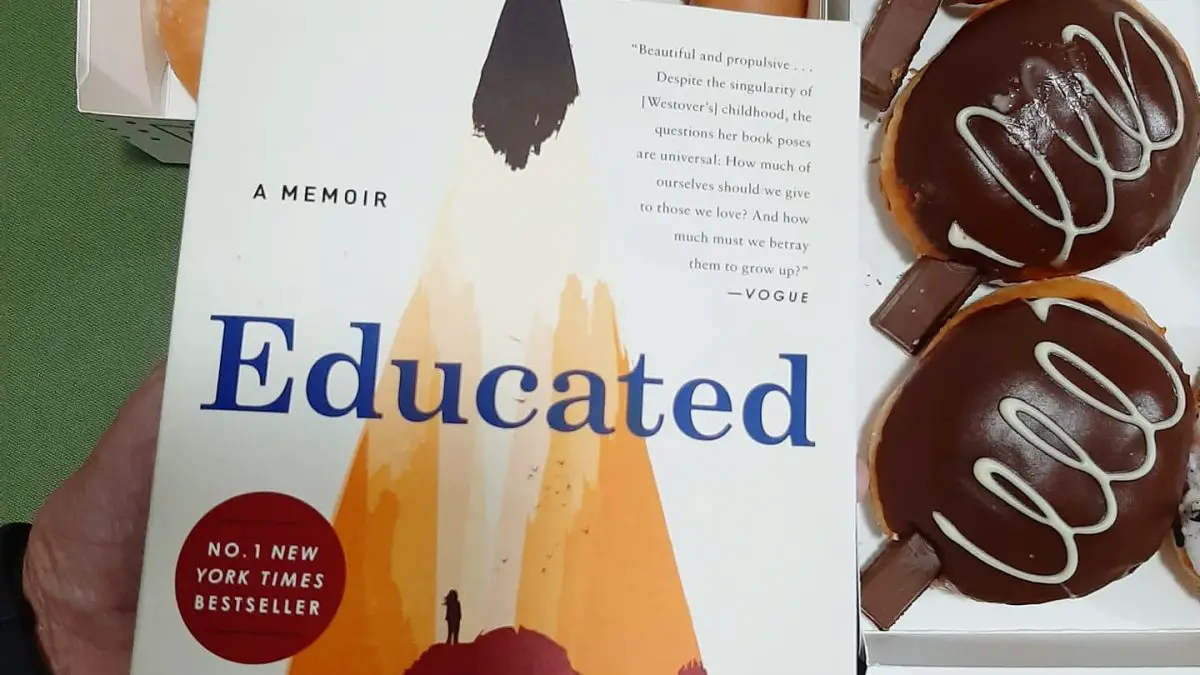What's a good read?
Education can estrange you from the ones you love who taught you everything about the world then one day you realize that they were wrong about so many things from the imagined order of society and religion to the mundane objects such as pain relievers vs essential oils. Your home has molded you from clay, the hands of your first mentors carefully sculpted ornate details into your mind and body according to their own definition of perfection, only to feel uncomfortable in your own skin and you willingly go through fire again to have your entire belief system deconstructed into ashes. And through education, you embark on self-discovery and build your true self this time. I think we all go through this process at one point in time, and Tara’s journey provides an extreme example that is worth reading. Bill Gates recommends this book and it is funny that he only learns that Tara Westover is a Gates scholar when he reads that part in her memoir.

I cannot help myself from dissecting this book using concepts in Family Medicine. First, I establish the family structure by picturing the characters in a genogram with Tara as the index patient. Her family members with possible personality disorders and psychiatric diseases are marked. Second, I identify the family boundaries of the Westover family. They are the epitome of an extremely enmeshed family where the parents are over-involved in their children’s lives, children are expected to strictly conform to family tradition – Mormonism and survivalism, ideas and beliefs that differ from the family’s are thrown out the window, and lastly, GUILT is used by authoritarian parents to make their children obey. Third, I attempt to indirectly evaluate their relationships using the APGAR family assessment tool through Tara’s accounts of significant family crisis – accident, sickness, physical and verbal abuse, and violence.
A – Adaptation. I am satisfied that I can turn my family for help when something is troubling me.
P – Partnership. I am satisfied with the way my family discusses items of common interest and shares problem-solving with me.
G – Growth. The relationship between me and my family is cordial/friendly.
A – Affection. I am satisfied with the way my family expresses affection and responds to my feelings such as anger, sorrow, and love.
R – Resolve. I am satisfied with the way my family and I are able to resolve our differences in opinion and arrive at solutions.
You can guess that the score is really low which justifies Tara’s decision to walk away from her life in the mountains of Idaho as a survivalist where she has been preparing a bunk-yard for The End of Days under the command of her paranoid father, and enter a new world which is so different from what her parents taught her in homeschooling. Fourth, I observe how the family adapts to different family stages – when first and last child leaves home leaving empty nesters, the grandparents die, and the children start their own families. Fifth, I identify the psychosocial issues that surround the character that triggers her anxiety and hinders her performance in school. This is an overview of what I do – diagnose the disease, identify the biopsychosocial factors that contribute to it, and determine the family lifeline – whom we can ask for moral and emotional support to hasten recovery aside from pills and prescriptions.
I have pure admiration and respect for Tara for cutting off her ties with toxic family members who guise manipulation as guidance, for single-handedly passing the college entrance exam despite lacking a formal elementary and high school education, and for courageously maneuvering an unfamiliar territory and striking gold. I am also humbled by the countless times she went back home to reconcile with loved ones, only to be emotionally damaged all over again. Her story resounds with many homes in which one or two members suffer from a mood or personality disorder who firmly believe that doctors are evil hence refuse to seek treatment, and repeat the cycle of emotional abuse and chaotic drama. Tara Westover revisits her childhood memories not to seek revenge but to understand. I commend her for carefully treading the topics Mormonism, survivalism, and her own family crisis with such dignity. I can tell how education has transformed her into an intelligent, humble, and kind person. Her memoir manifests the power of education – how it can save you from a harsh environment, transform your scars into skills, and make it possible to live your dreams.


